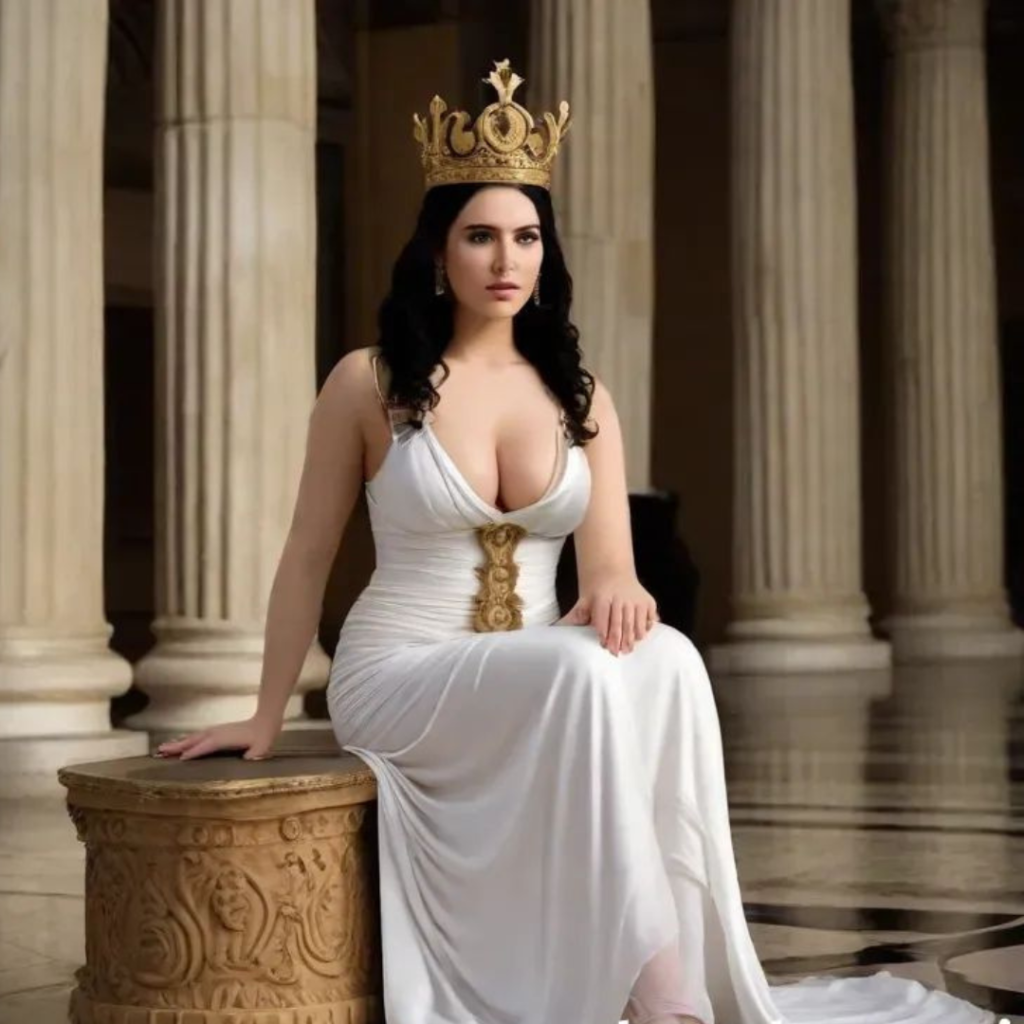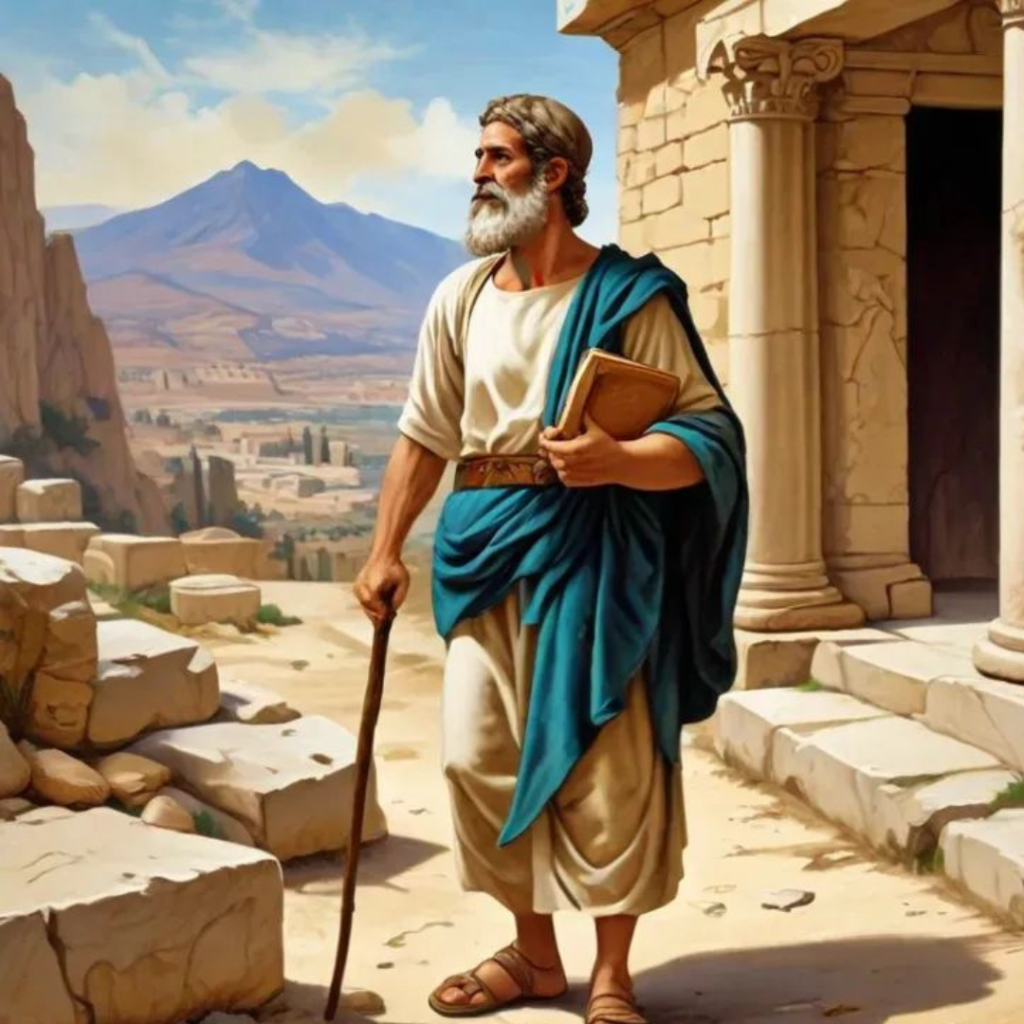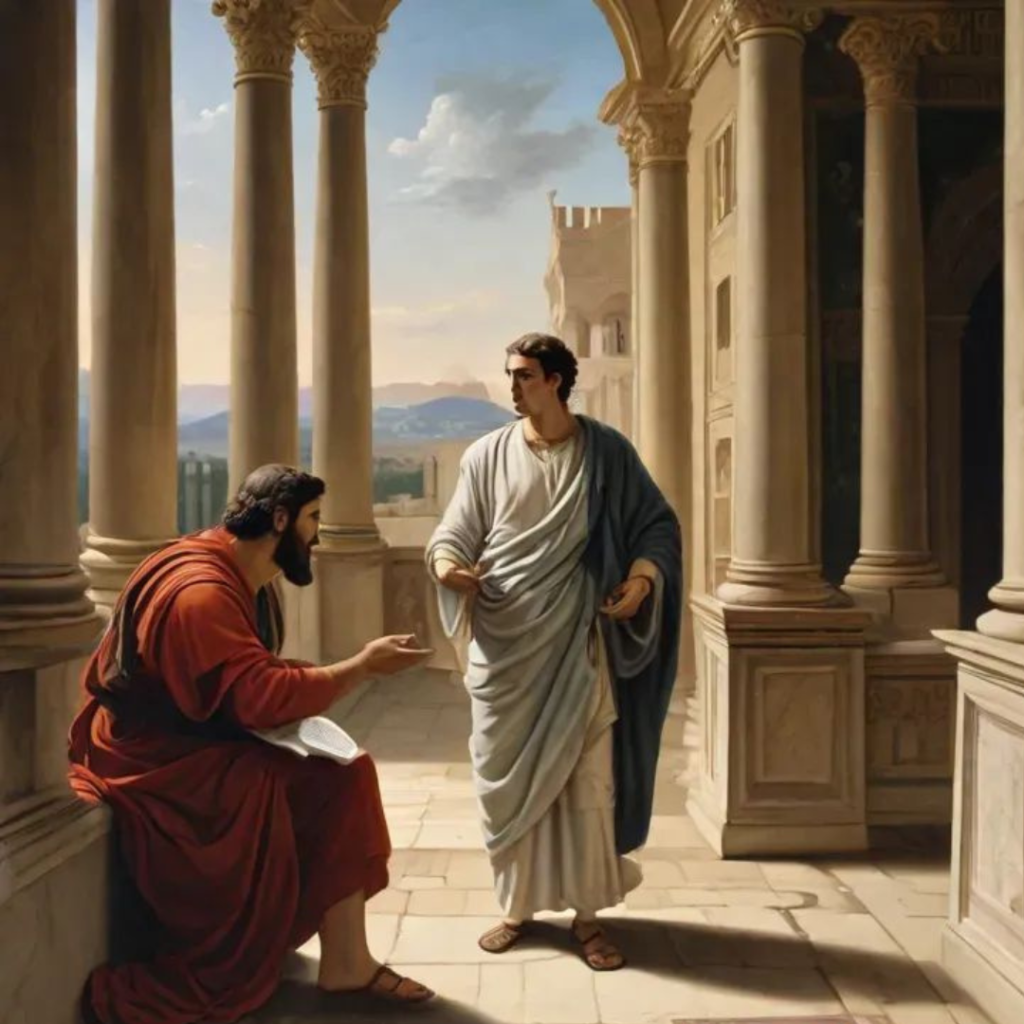“Oedipus the King,” also known as “Oedipus Rex,” is a classical Greek tragedy written by Sophocles. It was first performed around 429 BC. The play is part of Sophocles’ Theban Trilogy, which also includes “Antigone” and “Oedipus at Colonus.” “Oedipus the King” is a seminal work in the Western literary canon and is renowned for its exploration of fate, free will, and the tragic consequences of human actions. The story centres on Oedipus, the King of Thebes, who seeks to uncover the truth about his origins, only to discover that he has unwittingly fulfilled a prophecy that foretold he would kill his father and marry his mother.
Characters
“Oedipus the King” features a range of characters that contribute to the unfolding tragedy. Here are the key characters:
Oedipus
- Role: King of Thebes
- Description: Oedipus is the protagonist of the play, known for his intelligence and his determination to find the truth. He is also characterized by his pride and quick temper. His quest to uncover his own origins leads to his tragic downfall when he discovers that he has fulfilled a prophecy that foretold he would kill his father and marry his mother.
Jocasta

- Role: Queen of Thebes, wife, and mother of Oedipus
- Description: Jocasta is a key figure who initially tries to soothe Oedipus and dismisses the prophecies as unreliable. Her despair upon realizing the truth about her marriage leads to her tragic end.
Creon

- Role: Brother-in-law of Oedipus, Jocasta’s brother
- Description: Creon is a loyal and pragmatic character who brings the Oracle’s message to Oedipus. He becomes a central figure in the political dynamics of the play and is accused by Oedipus of conspiracy. In the end, he assumes control of Thebes.
Tiresias

- Role: Blind prophet
- Description: Tiresias is a seer who knows the truth about Oedipus’s origins but is reluctant to reveal it. When he does, he faces Oedipus’s wrath. His character symbolizes the theme of blindness and sight, representing insight and knowledge despite his physical blindness.
Laius

- Role: Former King of Thebes, father of Oedipus
- Description: Laius is killed by Oedipus before the events of the play. His murder sets off the chain of events leading to the play’s central conflict. His attempt to thwart the prophecy by abandoning Oedipus as a baby ultimately fails.
The Chorus

- Role: Represents the elders of Thebes
- Description: The Chorus provides background information, comments on the action, and reflects the public’s reaction to the events of the play. They offer insight into the play’s moral and thematic messages.
Messenger from Corinth

- Role: Brings news of Polybus’s death
- Description: This messenger reveals to Oedipus that Polybus and Merope, the rulers of Corinth, were not his biological parents, which leads to further revelations about Oedipus’s true parentage.
Shepherd

- Role: Former servant of Laius
- Description: The shepherd is the one who took the infant Oedipus from Laius and Jocasta and gave him to the messenger from Corinth. His testimony is crucial in confirming Oedipus’s identity.
Second Messenger

- Role: Brings news of Jocasta’s death and Oedipus’s self-blinding
- Description: This character reports the offstage actions that conclude the play’s dramatic events, emphasizing the tragic outcomes.
Antigone and Ismene

- Role: Daughters of Oedipus and Jocasta
- Description: Though their roles are minor in this play, Antigone and Ismene are significant for the legacy of Oedipus and feature more prominently in other plays of the Theban Trilogy.
These characters collectively drive the tragic narrative of “Oedipus the King,” each playing a crucial role in the unfolding of the prophecy and the ultimate downfall of Oedipus.
Oedipus the King Summary
“Oedipus the King” is a Greek tragedy by Sophocles that tells the story of Oedipus, the King of Thebes, who is determined to save his city from a devastating plague. Here is a detailed summary:
Prologue

The play begins with the people of Thebes pleading with King Oedipus to save them from a plague. Oedipus has already sent his brother-in-law, Creon, to the Oracle at Delphi to learn how to end the plague. Creon returns with a message from the Oracle: the plague will be lifted if the murderer of the former King Laius is found and punished.
Act 1

Oedipus vows to find Laius’s murderer. He curses the killer, unaware that he is the one he seeks. Oedipus calls for Tiresias, a blind prophet, to reveal the murderer. Tiresias initially refuses to speak, but when pressured, he declares that Oedipus himself is the murderer. Oedipus is enraged and accuses Tiresias and Creon of conspiracy.
Act 2

Oedipus’s wife, Jocasta, tries to calm him, dismissing prophecies. She tells Oedipus that Laius was prophesied to be killed by his son, but he was killed by robbers at a crossroads, and their son was left to die on a mountainside. This story disturbs Oedipus, as he recalls killing a man at a crossroads in similar circumstances.
Act 3

A messenger arrives from Corinth with news that Oedipus’s supposed father, King Polybus, has died. The messenger reveals that Polybus was not Oedipus’s biological father; Oedipus was found as an abandoned infant and given to Polybus. This prompts further investigation.
Act 4
Another messenger, the shepherd who found the infant Oedipus, is brought in. Under questioning, he reveals that the child came from the house of Laius and Jocasta. This confirms that Oedipus is indeed the son of Laius and Jocasta, making the prophecy true: he has killed his father and married his mother.
Climax and Conclusion

Realizing the truth, Jocasta hangs herself. Oedipus, in a fit of despair and guilt, blinds himself with Jocasta’s brooches. He begs to be exiled from Thebes. Creon, now the ruler, grants his wish but takes charge of Oedipus’s daughters, Antigone and Ismene.
Exodus

The play ends with Oedipus, now blind and broken, being led away. The chorus reflects on the tragic fate of Oedipus, emphasizing the play’s themes of fate, free will, and the limits of human understanding.
Themes
Fate vs. Free Will: The inevitability of destiny and the futility of trying to escape it is a central theme.
The Limits of Human Knowledge: Oedipus’s search for truth and his ultimate ignorance underscore the limits of human understanding.
Guilt and Shame: The play explores personal responsibility and the psychological impact of guilt and shame.
Sight and Blindness: Physical sight and insight are contrasted throughout the play, symbolizing knowledge and ignorance.
FAQ on Oedipus the King
What is the plot of Oedipus the King?
“Oedipus the King,” also known as “Oedipus Rex,” is a tragedy that tells the story of Oedipus, the King of Thebes, who is determined to rid the city of a terrible plague. He discovers that the plague is a punishment for the murder of the former king, Laius. Oedipus vows to find and punish the murderer, only to realize that he himself is the culprit. Through the course of the play, he discovers that he has unwittingly killed his father and married his mother, Jocasta.
What is the significance of the prophecy?
The prophecy is central to the plot. It foretold that Oedipus would kill his father and marry his mother. Despite efforts by his parents and Oedipus himself to avoid this fate, the prophecy is fulfilled, highlighting the themes of inevitability and the power of fate.
How does Oedipus’s character change throughout the play?
At the beginning of the play, Oedipus is confident, proud, and determined to save Thebes. As he investigates the murder of Laius, he becomes increasingly anxious and desperate. By the end, he is devastated by the revelation of his true identity and blinded by the truth, leading to his tragic downfall.
What role does dramatic irony play in the story?
Dramatic irony is a key element in “Oedipus the King.” The audience knows from the start that Oedipus is Laius’s murderer and Jocasta’s son, but Oedipus himself is unaware. This creates a sense of anticipation and poignancy as Oedipus gradually uncovers the truth.
What is the role of the Chorus?
The Chorus in Greek tragedy serves multiple functions. In “Oedipus the King,” the Chorus represents the voice of the Theban elders, offering background information, commenting on the action, and reflecting the public’s reaction to the unfolding drama. They also help to underscore the themes and moral lessons of the play.
How does the play address the concept of hubris?
Hubris, or excessive pride, is a central theme. Oedipus’s hubris is evident in his refusal to heed warnings and his belief that he can outsmart the prophecy. This pride leads to his downfall, illustrating the dangers of hubris.
What is the significance of Oedipus blinding himself?
Oedipus blinds himself as a form of self-punishment and to symbolize his transition from ignorance to knowledge. It represents his acknowledgement of his metaphorical blindness to the truth and his acceptance of his fate.
How does the play end?
The play ends with Oedipus accepting his fate and requesting to be exiled from Thebes. He is devastated by his discoveries but resigned to his punishment. Jocasta, unable to bear the truth, takes her own life, and Oedipus’s tragic downfall is complete.

